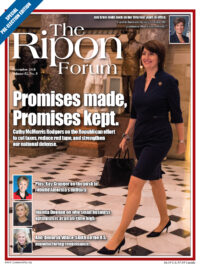
Nearly two years since their election, President Trump and Vice President Pence’s repeated trips to Iowa underscore the current political realities in the state, including here in Dubuque. Despite strong economic conditions, Republican vulnerability is a prominent part of that reality this cycle. The President’s success in states such as Iowa was a key to his 2016 victory, and the state remains vital for his and the Republican Party’s fortunes in 2018 and into the next presidential cycle of 2020.
The toss-up gubernatorial contest between the incumbent Republican Governor Kim Reynolds and Democrat Fred Hubbell, as well as the tight contest in the Iowa Third District between the incumbent Republican Congressman David Young and Democratic challenger Cindy Axne typify GOP vulnerability this year. Dubuque’s Republican Congressman, Rod Blum, represents Iowa’s First District and is cited as among the most endangered incumbents in the country due to the composition of the district and its voting history. Blum has been outraised by his opponent, State Representative Abby Finkenauer, although Blum retains a cash on hand advantage. This edge is substantially blunted by the sheer amount of Super PAC money pouring in to aid Finkenauer’s efforts. Estimates indicate Representative Blum is being outspent ten to one in advertising. However, the Congressional Leadership Fund just announced its first ad buy in the district, and two recent internal polls released by the Blum campaign show a much closer race than the limited public polling.
Dubuque is home to both significant agricultural interests as well as a John Deere production facility, and the impact of trade conflicts and tariffs became prominent issues for voters over the past year.
Taken together, the current picture of Iowa and Dubuque is that it is not yet firmly Trump Country. It is contested ground, and the president’s approval ratings in Iowa largely mirror that of the country. This fuels the president and vice-president’s continued focus. In a visit to Dubuque this summer, President Trump participated in a workforce development event at the local community college. As he delivered his remarks, a green hat was conspicuously present in front of him. The hat read “Make Our Farmers Great Again.” A variation of his ubiquitous campaign theme, the hat served as a tangible symbol of both the president’s pitfall and promise for voters here in Northeast Iowa.
The pitfalls include fallout from trade unrest threatening farmers and industrial interests, as markets such as China started to close as part of an escalating trade conflict. Dubuque is home to both significant agricultural interests as well as a John Deere production facility, and the impact of trade conflicts and tariffs became prominent issues for voters over the past year. Anxiety was particularly acute for those who had cast a reluctant vote for Trump in 2016. The promise part of the equation is President Trump’s self-styled hard-nosed approach to negotiation, which he claims will ultimately deliver for farmers and industry in negotiations with China and other prominent markets such as Canada and Mexico.
The recent unveiling of the prosaically named United States Mexico Canada Agreement (USMCA) was well timed to reassure voters, as was his most recent trip to Iowa just this month, when the president announced a rule change allowing for year-round sales of ethanol. Such a development, which would be largely ignored in other parts of the country, was particularly welcomed in Iowa by corngrowers. While the farm bill remains stalled in Congress, the administration announced financial support for farmers. On the ground, support for the president remains strong in the rural parts of Dubuque. There is little sign that rural voters in the area who voted Republican in 2016 are ready to leave for the Democrats in 2018. There have been moments of concern by these voters due to the trade conflicts, and, should market pressures continue over the longer term, support may soften.
The recent unveiling of the prosaically named United States Mexico Canada Agreement was well-timed to reassure voters, as was the President’s most recent trip to Iowa just this month.
Given the competitiveness of the electoral landscape, the outcome of the November elections will come down to voters without strong party allegiances, especially in suburban areas. Such voters often sit out midterms, but, for those who do participate, the impression of Washington is often one of growing dysfunction. While stalwarts of both parties readily see the other side as the main culprit in any dysfunction, centrist minded voters lament the general state of affairs. Many such voters here comment on the tenor and conduct of politics in Washington, with President Trump at the center of such discussions.
The fundamentals of Iowa’s First District favor Finkenauer. If she does unseat Blum, as many predict, the result will likely be due primarily to the political environment, and not to the particular strength of the challenger. Blum has proven resilient, and he has been outspent before, but the 2018 environment may simply be too much. What remains to be seen is whether other vulnerable Republicans in the state find themselves caught up as well. Whatever the outcome, it is safe to say that Iowa will remain contested ground, and President Trump will remain a presence here one way or the other.
Christopher B. Budzisz is Associate Professor of Politics at Loras College and the Director of the Loras College Poll. To read Professor Budzisz’s analysis of the political environment in Dubuque County that appeared in the June 2017 edition of the Forum, please click here.




